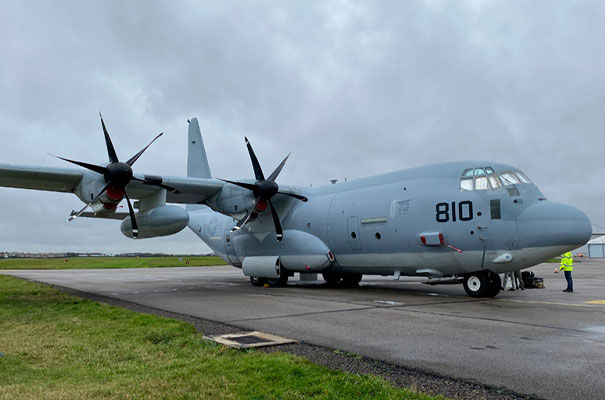To no-one in the aerospace industry’s great surprise Cranfield has today emerged as the last man standing in what was initially a three-way bid to host the relocation of Marshall Airport.
Marshall of Cambridge is seeking planning consent to develop a new future at Cranfield having ruled out RAF Wyton. It still has to iron out potential problems in housing its aerospace and land systems businesses at the world-class Bedford hub but these would appear to be formalities.
Duxford was first of the three to fall by the wayside in the relocation auction. Now Wyton has gone the same way.
The airport land owned by Marshall has been identified for redevelopment in the Greater Cambridge Local Plan Preferred Options. The company has chosen to confirm that plans to relocate its Aerospace and Defence businesses by 2030 remain firmly on track.
Marshall says it has completed extensive due diligence on all three of the locations originally under consideration and that having ruled out Duxford and Wyton, Cranfield remains “a viable and practical option that the company is continuing to pursue.”
Marshall CEO Kathy Jenkins said: “Whilst we are disappointed that we haven’t been able to make either Duxford or Wyton work for us we believe, given the obvious synergies between our Aerospace business and Cranfield, that it is a very compelling option.
“As such, we will shortly begin the process of preparing an outline planning application, with submission planned in Autumn 2022 in order give us further confidence that we have a deliverable site should we wish to relocate to Cranfield.
“However, like so many businesses, Covid-19 has changed a lot of things for us and this, coupled with recent announcements in relation to the early withdrawal of the RAF’s C-130 fleet, means we are not yet in a position to make a final decision about a choice of new home for our Aerospace or Land Systems businesses.
“Naturally, given the exciting news that the airport land has been included in the Local Plan Preferred Options, our priority now is to confirm definitive relocation plans as soon as we are practicably able and we look forward to making further announcements in due course.”
Cranfield is globally respected as an airport ideally placed to conduct bleeding edge research into FutureTech opportunities for both space and aerospace.
Originally a World War II aerodrome, it is now used for business aviation, private flights and for Research & Development activities. Marshall and Cranfield last October signed an option agreement for a proposed relocation of the Cambridge operations.
Marshall vacating the site will create crucial housing and commercial space for Cambridge as it continues to burgeon as an international hub for hi-tech and life sciences.
The move will provide space for 12,000 homes and 5 million sq ft of business and commercial space – creating a massive number of new jobs.

